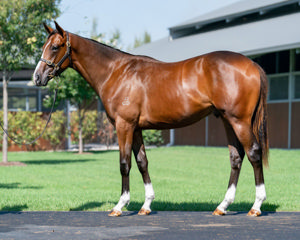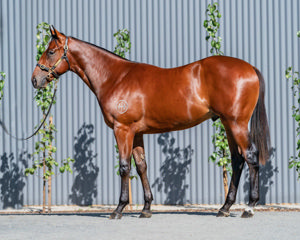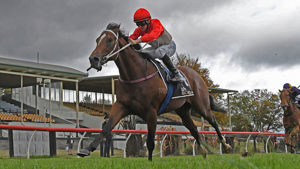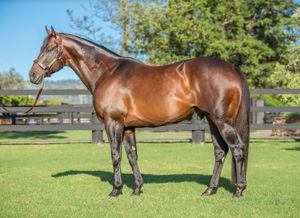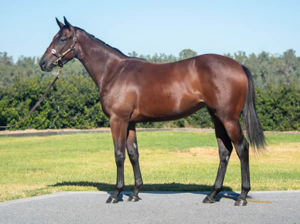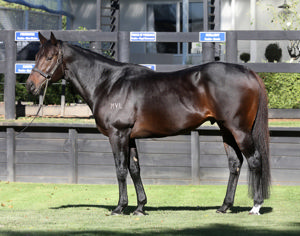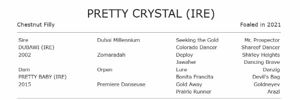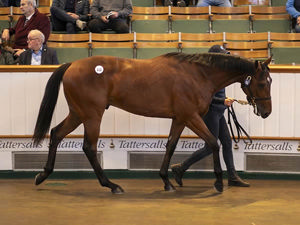Susan Zeitz writes - I listened with interest when Mr Moodie from Racing Australia recently spoke on RSN and explained that he did not understand why breeders are not grateful about the current proposal by Racing Australia to change the rules and impose the rules of racing on thoroughbred horse breeders.
I understand that the reasons put forward to support this are twofold: horse welfare and integrity.
I have some responses to that which are set out below.
I also have a number of questions. I consider that the proposed rule changes do not meet the stated purpose nor are capable of enhancing and supporting the breeding industry.
I hold natural scepticism about the effectiveness of what is being proposed
given two recent excursions by Racing Australia into attempting to impose
additional regulation. I refer to the proposal in relation to compulsory helmets and the ongoing
disharmony around the whip rule.
Racing Australia has no relevance or accountability to me as a breeder of the thoroughbred racehorse. '
Those of you that sit on its Board are called "major" or "large" enterprises.
For those like me that run small businesses and are trying to make ends meet and a modest profit, your perspective doesn't seem to me to have considered how this might in practice affect the majority of us who are responsible for supplying the horses that are required to keep Australian racing viable.
This proposal is a first bite of the hand and I am very disappointed that you think I should accept the bite and be grateful rather than checking the wound for tetanus.
I understand that racing needs an average of 11 horses available for each race that is run. The statistics tell me that the size of the foal herd is reducing each year as it gets more expensive to raise horses and now you are adding to our challenges by requiring us to jump through a number of hoops that don't solve the fundamental issues –more about that later.
If you want Australian racing to run with average field sizes like Europe and the USA except on the big race days please just say so and those of us who are the minnows in the industry will the get the hint that we are not wanted and leave the field for the major and large enterprises to occupy.
I don't think that is what the majority of us want which brings me back to question how your organisation is accountable to the industry that it is now attempting to control.
I didn't vote for any of you and you haven't even asked me or anyone like me how we can address the issues that do face the breeding industry in a constructive and cost effective manner.
I emphasise "cost effective" because all of this begs the question of how you are going to fund compliance when the poor stewards are already overworked and stretched trying to manage the racing industry.
Recent and disturbing footage of a trainer who had allowed horses to suffer and starve demonstrates how thin on the ground the resources really are.
I would be grateful, as I am sure others would be, if you could provide the statistics from each racing jurisdiction in Australia about the frequency of inspection and visits to each trainer who maintains a licence.
I am sure that you would have embarked upon this venture having those statistics readily to hand and with a plan about how you are going to fund compliance.
My interest is as a thoroughbred horse breeder. The business is established and runs as a discretionary trust.
It is one of the many legitimate vehicles available for businesses to conduct their agribusiness pursuits and should be non-controversial.
The rule requires that the "beneficial owner" be declared and that is defined as a person who has a right to profit distribution or other like benefit from ownership of a horse even though the title to the horse is in another's name.
I understand that the first named person in that list is the manager according to the rule and definition change.
I also understand that it is proposed that if the time lines for registration are not met, the foal can never race.
So I have the following questions:
1/In the case of a trust, is it the trustee or the beneficiaries and, if the beneficiaries, how are they to be listed. Of course they have no right under a trust until the trustee exercises a discretion to distribute (it is why they are called discretionary trusts) so it is not a certain interest but is it a beneficial interest and do all of the potential beneficiaries have to be listed and if so in what order? Does the alphabetically first become the default manager?
2/In the case of a company, is it the shareholders who are the beneficial owners and how are they to be determined if there are holding companies and subsidiaries in between. And when you do get to the final owner and discover that some of the shares are held by discretionary trusts how is that to be addressed?
3/In the case of a foal share where the stud retains an interest in the foal how is that to be determined and who is responsible for registering the foal and making the declaration?
4/In the case of a stallion fee that has not been paid and the stud has exercised its right not to allow the foal to be registered where does the liability lie for that to be resolved and, if it is not, does that mean that the foal can never get the chance to race?
5/In the case of a joint venture or where a mare is owned by a number of people, how are their interests to be defined in terms of the ultimate beneficial interest in the foal.
6/In the case of a stud or farm that has a debenture or other security registered over the business including all stock (and that are registered under the PPS) who has the beneficial ownership or must it be declared as one but in default the bank –I am not sure the banks will be pleased to find themselves required to be bound by the rules of racing. Since a bank is a company how is that to be defined to comply with the rules of racing. Perhaps their CEOs are going to be the managers of the horses?
7/In the case of property disputes arising from matrimonial and other break ups how are the rights that may be claimed in the relevant courts to be recognised as part of the registration process.
8/Then of course there is the hobby breeder who simply wants to breed a horse that they might want to register in the future if it looks like it might run but is now being required to spend time and money complying with a rule that may never be relevant. Are they going to be banned because they didn't sign up to your rules early enough? Of course they do sign up when and if the horse gets to race.
9/And what about the large number of breeders who are in this for love of the horse and who may not get around to registering the foal any time soon but intend to own and race it at some point. Are they now to be barred because they forgot or missed a deadline by a few days?
10/Out of all of the above who goes first and takes on the "manager" role and how is that determined by the rules. Surely it just can't be ad hoc or in alphabetical order?
11/And finally, what about the businesses that are owned off shore (wholly or partly)? How are you going to check that the information is correct? How do you determine which is the beneficiary and which of them is the manager? How are they to be managed and required to comply with the rules of racing when they don't even live here?
Already I am up to 11 questions and that is just on the processes and some of the problems that I can see emerging. Whoever is collecting this data is going to be very busy trying to check it all or is it proposed to accept what is lodged at face value –of course if that is the case then there is no point putting the system into practice since there will be no checking and all sorts of people could find themselves named and know nothing about their alleged responsibilities.
But of course I have more questions that go to compliance and some comments:
12/How do you determine which drugs and medications are appropriate for young horses and mares when they are all permitted for treatment and management of stock? Do we have to pay for separate storage units on each property and elaborate checks and balances so that we can make sure nothing that is inconsistent with the rules of racing is administered? And when do the rules of racing apply to a foal that may not survive or may never race.
13/The Australian Stud Book already records how many mares there are and which are in foal to registered stallions. Foal returns already tell you which foals have arrived safely and which, sadly, have not. The data you want is already available. I have found it frustrating that the ASB doesn't identify current mare owners and relies only on foal returns. That might have been a better starting point for this exercise.
14/Of course mares get sold, sometimes in foal, sometimes with foals at foot and occasionally several times during a year and the way that has always been checked is through foal registration. Perhaps if more had been invested in following up foal registrations we might not be in this position. As I understand it the Australian Stud Book is under your control so why has more not been invested to provide the resources to allow it to be up to date? That might have been a good start.
15/Also, you seem to be focussing a lot on the foals but if you are really interested in horse welfare where is the attention on the mares who drop out or drop off the Stud Book. You don't seem to be bothered about their fate and you should well know that this is a major challenge for the industry which has had little focus nor attention. Your proposed rule does nothing to protect them.
16/Of course, I understand that your focus is on the foals that are born to ensure that their welfare throughout their lives. That is laudable and commendable but since I understand that there is industry support and promotion marketing these horses to jurisdictions that have a one way ticket to a very nasty end if they are not fast enough or they break down or get too old I have to question the motives for changing the rule here. Perhaps I have misunderstood and China, Singapore, Korea, Turkey, Malaysia, Indonesia and other jurisdictions are all working with you to ensure that the yearlings that are sold into those markets all have long and healthy lives after racing.
I am sure that you would have started this venture with Australian breeders having that issue firmly in mind so I would appreciate your telling me the plan and how you are working with the sales companies and bloodstock agents to ensure that animal welfare and integrity applies beyond our shores. For the record I am very uncomfortable with the eagerness with which our horses are sold into some markets so will be delighted when you can assure me that their welfare is being fully protected through these changes.
17/ Your approach seems to be predicated on a national approach that is not supported by the State based structures. The laws in each State around agricultural management differ and the regulations and rules that apply to land management are particular to each State. This includes weed and pest control measures that can introduce certain chemicals into a horses' bloodstream in the short term. How are we supposed to reconcile all of these?
18/ As it stands the structures of businesses and the varied arrangements that people have for horse ownership do not appear to be catered for by the proposed rule. If I don't know who the beneficial owner is how can I fill out a form? The reach of the definition seems to far exceed the grasp that is necessary.
I am, and I am sure others like me are committed to the welfare of our mares, their foals and this wonderful thoroughbred breeding industry.
I am disappointed that you have decided that a takeover is the only option and, bluntly, have to question how you came to that conclusion. I might have been prepared to accept gratefully some changes if it wasn't for the fact that the instrument you are using is doomed to fail and will just mean that many of us walk away or reduce our investment.
For most of us who are small businesses our personal endeavours are directed to funding these breeding ventures and we are experiencing this as a slap in the face.
So, respectfully, I suggest that you reconsider and relinquish this unnecessary grab for control as it won't solve the problems you have identified and there is no infrastructure in place that can properly administer it and ensure compliance at all levels.
The structure is being set up to fail and we will all look foolish and flat footed when something goes terribly wrong and the system is shown to be insufficiently resourced for the challenge.
As your stated purpose genuinely is to protect the welfare of these wonderful creatures that I am privileged to observe and be involved in I offer a few suggestions.
I am a small breeder who believes that practicality and common sense should be the first step in dealing with issues as set out below:
1.Thoroughbred horse breeding is a separate industry that supplies and is vital to horse racing but it is not horse racing. My mares puddle around paddocks and look for breakfast and dinner which is the only time their running gene is manifest. They live on farms not in boxes and they don't see trainers only vets, farriers and others who ensure that they are well cared for and well. So please, stay out of our business and we will stay out of yours.
2. If you want to know who is responsible for a horse so that someone is identified who can be held accountable for compliance with rules relevant to horse breeding, that should be either a the trustee of a trust or the nominated office holder of a company or the designated officer or person in a business.
Smarter people than me worked out a long time ago that when it comes to compliance, a single person is the best place to start. So make a single person confirm when registering a foal that they are responsible for its welfare until it is sold or transferred.
Then make people submit returns when ownership changes –those ID cards are supposed to have work to do and maybe it is time that they did. If someone accepts personal liability and responsibility for welfare of a horse in accordance with the animal welfare laws of the State in which the horse resides and the rules of the Australian Stud Book then they are easy to identify for compliance purposes.
3. Require the nominated responsible person to provide the ASB each year with the list of horses for which they are responsible (by 31 January each year should do the trick for the vast majority) and advise which horses they have sold or transferred and the identity of the person to whom they have been transferred –treating it a bit like car registration and transfers might not be a bad idea! All that can be done with minimal changes needed and will allow the ASB records to be up to date. That is a good starting point.
4. All of our organisations are State based and there is already infrastructure in place for animal welfare that can be improved for the breeding industry. Surely we can do better than attaching something to the rules of racing.
Bringing in codes of conduct that cover animal welfare, employee health and safety and land management would place us in the best position to improve the industry where it is needed. This belongs with State government supporting agribusiness. It would have been great if you had looked to develop a scheme that could be applied through the States with the support of governments and other organisations.
Then it might have been used as a model for other parts of the equine industry –Standardbreds, competition, companion, performance and other working horses –because we don't just care about the thoroughbred when it is on our land or on the racetrack. This industry can't support the level of investment and the infrastructure required to support such a plan. Some vision rather than a simplistic drive for control which is simply polarising opinions is called for.
5. Your stated goals can't be achieved with this little rule because it can't actually provide the information in a form that is useable or establish a system that is sufficiently resourced to be enforceable. In the meantime the small people who have battled and worked for perhaps that one horse to get to the track will become further alienated and those of us with a few horses will reduce numbers and eventually give up.
6. Also, why is it that you consider a breeding business should be subject to the rules of racing when it doesn't race horses? You have said that it is about their welfare and integrity but the only recent example of integrity I can recall was when there an assertion that a yearling had presented at a yearling sale was been given a prohibited substance. Your organisation issued a press release when it had no role in the matter and referenced a "positive for anabolic steroid" which wassubsequently proved to be incorrect. Cautioning against presumption when the label was attached didn't change the speculation or limit the damage. I didn't see your accountability as an organisation on that occasion.
7. Something worthwhile that will help us all would be a review of the rules of racing which don't reflect current business structures and which, properly updated, can provide an easier user experience. A novice in the racing industry finds the rules difficult to understand, the forms confusing and the paper-based process so last century. To encourage the next generation getting involved you need to make the system work better and perhaps if you spent time and effort on that, work ins with the State and national thoroughbred breeding organisations would deliver some real outcomes that benefit the welfare of the horses that provide us with such wonderful enjoyment.
8. As far as integrity is concerned, codes of practice and working with State government authorities and organisations, identification of responsible persons and some education and support for the breeding industry would produce better outcomes than this clunky little rule that is like an annexure to the racing industry.
So finally, please stay out of my industry. You don't belong in it and your attempts to bring me under the control of racing and the stewards are not appreciated. When it comes to registering the business's foals this year I understand that I have to agree to be bound or they won't be registered and therefore will never be entitled to race. That is unfair and heavy handed.
However, for the record, I will comply with the forms this year but I do so without prejudice and do reserve my rights to challenge your infringement of my rights and your incursions into my industry–I don't think the rule is valid and believe that it exceeds the scope of your jurisdiction and that of the State racing authority.
If you want respect you need to earn it and thus far I see nothing to encourage that.
Yours sincerely Susan Zeitz
Racing Australia has no relevance or accountability to me as a breeder of the thoroughbred racehorse. '
Those of you that sit on its Board are called "major" or "large" enterprises.
For those like me that run small businesses and are trying to make ends meet and a modest profit, your perspective doesn't seem to me to have considered how this might in practice affect the majority of us who are responsible for supplying the horses that are required to keep Australian racing viable.
This proposal is a first bite of the hand and I am very disappointed that you think I should accept the bite and be grateful rather than checking the wound for tetanus.
I understand that racing needs an average of 11 horses available for each race that is run. The statistics tell me that the size of the foal herd is reducing each year as it gets more expensive to raise horses and now you are adding to our challenges by requiring us to jump through a number of hoops that don't solve the fundamental issues –more about that later.
If you want Australian racing to run with average field sizes like Europe and the USA except on the big race days please just say so and those of us who are the minnows in the industry will the get the hint that we are not wanted and leave the field for the major and large enterprises to occupy.
I don't think that is what the majority of us want which brings me back to question how your organisation is accountable to the industry that it is now attempting to control.
I didn't vote for any of you and you haven't even asked me or anyone like me how we can address the issues that do face the breeding industry in a constructive and cost effective manner.
I emphasise "cost effective" because all of this begs the question of how you are going to fund compliance when the poor stewards are already overworked and stretched trying to manage the racing industry.
Recent and disturbing footage of a trainer who had allowed horses to suffer and starve demonstrates how thin on the ground the resources really are.
I would be grateful, as I am sure others would be, if you could provide the statistics from each racing jurisdiction in Australia about the frequency of inspection and visits to each trainer who maintains a licence.
I am sure that you would have embarked upon this venture having those statistics readily to hand and with a plan about how you are going to fund compliance.
My interest is as a thoroughbred horse breeder. The business is established and runs as a discretionary trust.
It is one of the many legitimate vehicles available for businesses to conduct their agribusiness pursuits and should be non-controversial.
The rule requires that the "beneficial owner" be declared and that is defined as a person who has a right to profit distribution or other like benefit from ownership of a horse even though the title to the horse is in another's name.
I understand that the first named person in that list is the manager according to the rule and definition change.
I also understand that it is proposed that if the time lines for registration are not met, the foal can never race.
So I have the following questions:
1/In the case of a trust, is it the trustee or the beneficiaries and, if the beneficiaries, how are they to be listed. Of course they have no right under a trust until the trustee exercises a discretion to distribute (it is why they are called discretionary trusts) so it is not a certain interest but is it a beneficial interest and do all of the potential beneficiaries have to be listed and if so in what order? Does the alphabetically first become the default manager?
2/In the case of a company, is it the shareholders who are the beneficial owners and how are they to be determined if there are holding companies and subsidiaries in between. And when you do get to the final owner and discover that some of the shares are held by discretionary trusts how is that to be addressed?
3/In the case of a foal share where the stud retains an interest in the foal how is that to be determined and who is responsible for registering the foal and making the declaration?
4/In the case of a stallion fee that has not been paid and the stud has exercised its right not to allow the foal to be registered where does the liability lie for that to be resolved and, if it is not, does that mean that the foal can never get the chance to race?
5/In the case of a joint venture or where a mare is owned by a number of people, how are their interests to be defined in terms of the ultimate beneficial interest in the foal.
6/In the case of a stud or farm that has a debenture or other security registered over the business including all stock (and that are registered under the PPS) who has the beneficial ownership or must it be declared as one but in default the bank –I am not sure the banks will be pleased to find themselves required to be bound by the rules of racing. Since a bank is a company how is that to be defined to comply with the rules of racing. Perhaps their CEOs are going to be the managers of the horses?
7/In the case of property disputes arising from matrimonial and other break ups how are the rights that may be claimed in the relevant courts to be recognised as part of the registration process.
8/Then of course there is the hobby breeder who simply wants to breed a horse that they might want to register in the future if it looks like it might run but is now being required to spend time and money complying with a rule that may never be relevant. Are they going to be banned because they didn't sign up to your rules early enough? Of course they do sign up when and if the horse gets to race.
9/And what about the large number of breeders who are in this for love of the horse and who may not get around to registering the foal any time soon but intend to own and race it at some point. Are they now to be barred because they forgot or missed a deadline by a few days?
10/Out of all of the above who goes first and takes on the "manager" role and how is that determined by the rules. Surely it just can't be ad hoc or in alphabetical order?
11/And finally, what about the businesses that are owned off shore (wholly or partly)? How are you going to check that the information is correct? How do you determine which is the beneficiary and which of them is the manager? How are they to be managed and required to comply with the rules of racing when they don't even live here?
Already I am up to 11 questions and that is just on the processes and some of the problems that I can see emerging. Whoever is collecting this data is going to be very busy trying to check it all or is it proposed to accept what is lodged at face value –of course if that is the case then there is no point putting the system into practice since there will be no checking and all sorts of people could find themselves named and know nothing about their alleged responsibilities.
But of course I have more questions that go to compliance and some comments:
12/How do you determine which drugs and medications are appropriate for young horses and mares when they are all permitted for treatment and management of stock? Do we have to pay for separate storage units on each property and elaborate checks and balances so that we can make sure nothing that is inconsistent with the rules of racing is administered? And when do the rules of racing apply to a foal that may not survive or may never race.
13/The Australian Stud Book already records how many mares there are and which are in foal to registered stallions. Foal returns already tell you which foals have arrived safely and which, sadly, have not. The data you want is already available. I have found it frustrating that the ASB doesn't identify current mare owners and relies only on foal returns. That might have been a better starting point for this exercise.
14/Of course mares get sold, sometimes in foal, sometimes with foals at foot and occasionally several times during a year and the way that has always been checked is through foal registration. Perhaps if more had been invested in following up foal registrations we might not be in this position. As I understand it the Australian Stud Book is under your control so why has more not been invested to provide the resources to allow it to be up to date? That might have been a good start.
15/Also, you seem to be focussing a lot on the foals but if you are really interested in horse welfare where is the attention on the mares who drop out or drop off the Stud Book. You don't seem to be bothered about their fate and you should well know that this is a major challenge for the industry which has had little focus nor attention. Your proposed rule does nothing to protect them.
16/Of course, I understand that your focus is on the foals that are born to ensure that their welfare throughout their lives. That is laudable and commendable but since I understand that there is industry support and promotion marketing these horses to jurisdictions that have a one way ticket to a very nasty end if they are not fast enough or they break down or get too old I have to question the motives for changing the rule here. Perhaps I have misunderstood and China, Singapore, Korea, Turkey, Malaysia, Indonesia and other jurisdictions are all working with you to ensure that the yearlings that are sold into those markets all have long and healthy lives after racing.
I am sure that you would have started this venture with Australian breeders having that issue firmly in mind so I would appreciate your telling me the plan and how you are working with the sales companies and bloodstock agents to ensure that animal welfare and integrity applies beyond our shores. For the record I am very uncomfortable with the eagerness with which our horses are sold into some markets so will be delighted when you can assure me that their welfare is being fully protected through these changes.
17/ Your approach seems to be predicated on a national approach that is not supported by the State based structures. The laws in each State around agricultural management differ and the regulations and rules that apply to land management are particular to each State. This includes weed and pest control measures that can introduce certain chemicals into a horses' bloodstream in the short term. How are we supposed to reconcile all of these?
18/ As it stands the structures of businesses and the varied arrangements that people have for horse ownership do not appear to be catered for by the proposed rule. If I don't know who the beneficial owner is how can I fill out a form? The reach of the definition seems to far exceed the grasp that is necessary.
I am, and I am sure others like me are committed to the welfare of our mares, their foals and this wonderful thoroughbred breeding industry.
I am disappointed that you have decided that a takeover is the only option and, bluntly, have to question how you came to that conclusion. I might have been prepared to accept gratefully some changes if it wasn't for the fact that the instrument you are using is doomed to fail and will just mean that many of us walk away or reduce our investment.
For most of us who are small businesses our personal endeavours are directed to funding these breeding ventures and we are experiencing this as a slap in the face.
So, respectfully, I suggest that you reconsider and relinquish this unnecessary grab for control as it won't solve the problems you have identified and there is no infrastructure in place that can properly administer it and ensure compliance at all levels.
The structure is being set up to fail and we will all look foolish and flat footed when something goes terribly wrong and the system is shown to be insufficiently resourced for the challenge.
As your stated purpose genuinely is to protect the welfare of these wonderful creatures that I am privileged to observe and be involved in I offer a few suggestions.
I am a small breeder who believes that practicality and common sense should be the first step in dealing with issues as set out below:
1.Thoroughbred horse breeding is a separate industry that supplies and is vital to horse racing but it is not horse racing. My mares puddle around paddocks and look for breakfast and dinner which is the only time their running gene is manifest. They live on farms not in boxes and they don't see trainers only vets, farriers and others who ensure that they are well cared for and well. So please, stay out of our business and we will stay out of yours.
2. If you want to know who is responsible for a horse so that someone is identified who can be held accountable for compliance with rules relevant to horse breeding, that should be either a the trustee of a trust or the nominated office holder of a company or the designated officer or person in a business.
Smarter people than me worked out a long time ago that when it comes to compliance, a single person is the best place to start. So make a single person confirm when registering a foal that they are responsible for its welfare until it is sold or transferred.
Then make people submit returns when ownership changes –those ID cards are supposed to have work to do and maybe it is time that they did. If someone accepts personal liability and responsibility for welfare of a horse in accordance with the animal welfare laws of the State in which the horse resides and the rules of the Australian Stud Book then they are easy to identify for compliance purposes.
3. Require the nominated responsible person to provide the ASB each year with the list of horses for which they are responsible (by 31 January each year should do the trick for the vast majority) and advise which horses they have sold or transferred and the identity of the person to whom they have been transferred –treating it a bit like car registration and transfers might not be a bad idea! All that can be done with minimal changes needed and will allow the ASB records to be up to date. That is a good starting point.
4. All of our organisations are State based and there is already infrastructure in place for animal welfare that can be improved for the breeding industry. Surely we can do better than attaching something to the rules of racing.
Bringing in codes of conduct that cover animal welfare, employee health and safety and land management would place us in the best position to improve the industry where it is needed. This belongs with State government supporting agribusiness. It would have been great if you had looked to develop a scheme that could be applied through the States with the support of governments and other organisations.
Then it might have been used as a model for other parts of the equine industry –Standardbreds, competition, companion, performance and other working horses –because we don't just care about the thoroughbred when it is on our land or on the racetrack. This industry can't support the level of investment and the infrastructure required to support such a plan. Some vision rather than a simplistic drive for control which is simply polarising opinions is called for.
5. Your stated goals can't be achieved with this little rule because it can't actually provide the information in a form that is useable or establish a system that is sufficiently resourced to be enforceable. In the meantime the small people who have battled and worked for perhaps that one horse to get to the track will become further alienated and those of us with a few horses will reduce numbers and eventually give up.
6. Also, why is it that you consider a breeding business should be subject to the rules of racing when it doesn't race horses? You have said that it is about their welfare and integrity but the only recent example of integrity I can recall was when there an assertion that a yearling had presented at a yearling sale was been given a prohibited substance. Your organisation issued a press release when it had no role in the matter and referenced a "positive for anabolic steroid" which wassubsequently proved to be incorrect. Cautioning against presumption when the label was attached didn't change the speculation or limit the damage. I didn't see your accountability as an organisation on that occasion.
7. Something worthwhile that will help us all would be a review of the rules of racing which don't reflect current business structures and which, properly updated, can provide an easier user experience. A novice in the racing industry finds the rules difficult to understand, the forms confusing and the paper-based process so last century. To encourage the next generation getting involved you need to make the system work better and perhaps if you spent time and effort on that, work ins with the State and national thoroughbred breeding organisations would deliver some real outcomes that benefit the welfare of the horses that provide us with such wonderful enjoyment.
8. As far as integrity is concerned, codes of practice and working with State government authorities and organisations, identification of responsible persons and some education and support for the breeding industry would produce better outcomes than this clunky little rule that is like an annexure to the racing industry.
So finally, please stay out of my industry. You don't belong in it and your attempts to bring me under the control of racing and the stewards are not appreciated. When it comes to registering the business's foals this year I understand that I have to agree to be bound or they won't be registered and therefore will never be entitled to race. That is unfair and heavy handed.
However, for the record, I will comply with the forms this year but I do so without prejudice and do reserve my rights to challenge your infringement of my rights and your incursions into my industry–I don't think the rule is valid and believe that it exceeds the scope of your jurisdiction and that of the State racing authority.
If you want respect you need to earn it and thus far I see nothing to encourage that.
Yours sincerely Susan Zeitz

